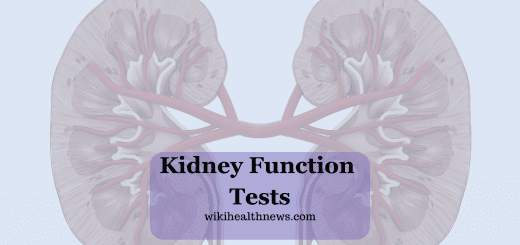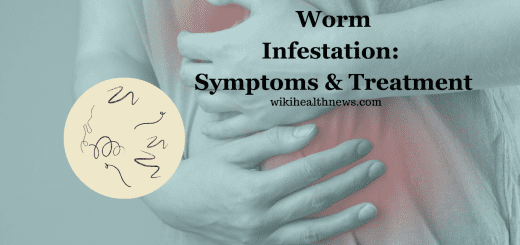How Melatonin Is Useful In Fertility

What is Melatonin?
Melatonin, the sleep wake hormone is secreted from pineal gland in the brain. It regulates circadian rhythms, has also been shown to exhibit unique oxygen scavenging abilities. Melatonin in infertility has been studied and found useful.
What are Reactive oxygen species ROS?
Reactive oxygen species (ROS) are chemically reactive chemical species containing oxygen. These are formed inside as a natural by-product of the normal metabolism of oxygen and have important role in homeostasis. Free oxygen radicals are created when oxygen is utilised in metabolic processes. These radicals contain ‘free’ valence electrons, making them highly reactive, capable of causing injury to cells.
What is the role of ROS in infertility?
While ROS are necessary for essential physiological processes, an overabundance can result in cellular damage, commonly referred to as ‘oxidative stress’. ‘Oxidative stress’, can have a negative impact on the success of infertility treatments though alteration of gamete biology.
How Melatonin is produced in the body?
Melatonin, a neuro-hormone mainly synthesised and secreted from the pineal gland. Melatonin is an indole amine, which is synthesised from the essential amino acid, tryptophan. Its production is dependent on ambient illumination, with release being suppressed by light. Its release is five times more in the midnight.
What is the main action of Melatonin?
Melatonin plays a major role in regulation of circadian rhythms and the sleep-wake cycle. Melatonin is thus associated with sleep disturbances including insomnia. It also appears to regulate reproductive seasonal variation in many animals.
What are oxygen scavengers?
An oxygen scavenger otherwise called antioxidant is a molecule that inhibits the oxidation of other molecules. Oxygen scavengers reduce free radicals by donating electrons to stabilise them. Anti-oxidative agents (oxygen-scavengers) are present endogenously but can also be administered exogenously. To balance the oxidative state, plants and animals maintain complex systems of overlapping antioxidants, such as glutathione and enzymes (e.g., catalase and superoxide dismutase) produced internally or the dietary antioxidants: vitamin A, vitamin C, and vitamin E.
What is the special ability of Melatonin as an antioxidant?
Melatonin is superior to classical anti-oxidative agents because it has several distinguishing qualities. Most unique characteristics is that, unlike classical anti-oxidants, melatonin is a suicidal terminal anti-oxidant. It has anti-oxidative effects through its receptors, but also as a direct free radical scavenger. It does not promote oxidation under any circumstances and its metabolites are also capable of acting as anti-oxidants in a ‘scavenging cascade reaction’ without themselves becoming oxidative. Melatonin also enhances the activity of other endogenous antioxidants including glutathione peroxidase and superoxide dismutase.
How melatonin helps in human reproduction?
As Melatonin regulates the sleep wake cycle it has implications in menstrual irregularities as well. Shift workers whose sleep wake cycle is disturbed experience menorrhagia like heavy and longer bleeding periods. in very high doses, when combined with progesterone, melatonin has the ability to suppress ovulation in humans, possibly by interfering with LH release. As mature ovarian follicles have higher concentrations of follicular fluid melatonin than smaller immature follicles it may imply a role for melatonin in oocyte maturation. It has role in foetal brain growth in pregnancy by increasing placental function.
Is Melatonin safe to use?
Melatonin has a remarkably benign safety profile in both animal and human studies, with no effects on the growing foetus. It does not have significant sedative effects and is not associated with hepato-nephrotoxicity. However, it is recommended to avoid the use of melatonin in those with autoimmune conditions because of its immuno- stimulatory effects.
What is the role of oxygen scavengers in fertility treatment?
IVF can result in exposure of oocytes and embryos to high levels of superoxide free radicals, which begins prior to oocyte retrieval. Ovarian stimulation protocols are associated with significant changes to the in-vivo follicular environment, altering endogenous levels of oxygen scavengers. As eggs and sperm are exposed to high oxygen concentrations in incubators and during handling throughout the IVF process this may result in oxidative stress. This oxidative stress modifies the quality of oocytes and embryos, decreasing the fertilisation rate and the success of the infertility treatment. Oxygen scavengers like melatonin can prevent such damage to yield better quality embryos and enhance pregnancy rate.
How Melatonin helps in assisted reproductive technology?
The role of Melatonin in IVF or ICSI is manifold.
Oocyte quality: Melatonin is an effective mitigator of mitochondrial DNA damage, Melatonin supplementation in-vitro is associated with a reduction in oxidative stress and improved oocyte maturation. It lowers level of ROS and helps to obtain greater proportion of MII (mature) oocytes.
Sperm quality: Melatonin inhibits apoptosis in spermatozoa, with a reduction in early apoptotic events being demonstrated in human sperm thus prolonging sperm survival.
Effects on Cryopreserved sperm:
Addition of melatonin to semen in cryopreserved seminal samples results in reduction of the oxidative effects of the freeze-thaw process on sperm quality. Hence better quality sperms can be obtained in a frozen semen sample.
Effects of melatonin on embryo culture media:
Higher cleavage rate, increased 8-cell embryo yield and an increased number of blastocysts and blastocyst hatching is observed in embryos cultured with melatonin concentrations. However, higher concentrations of melatonin in embryo culture media can be harmful. Melatonin has a significant impact on the development and quality of embryos, with lower concentrations being more beneficial (and less harmful) than higher ones.
Effects of melatonin on luteal function:
Melatonin supplementation significantly increase progesterone levels. An imbalance of ROS results in oxidative stress and this has been identified as a potential cause of luteal phase defect. Hence Melatonin supplementation can improve serum progesterone levels in women with a luteal phase defect.
Read more












